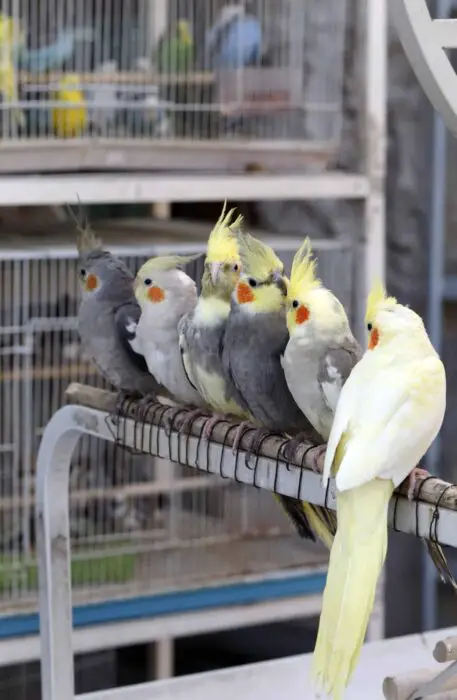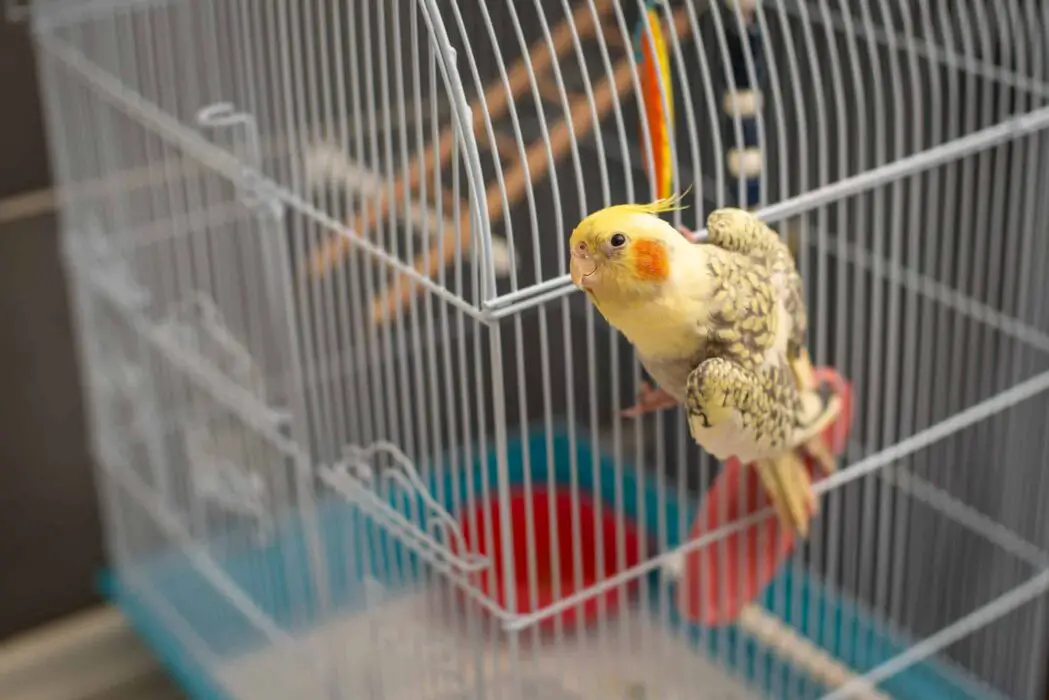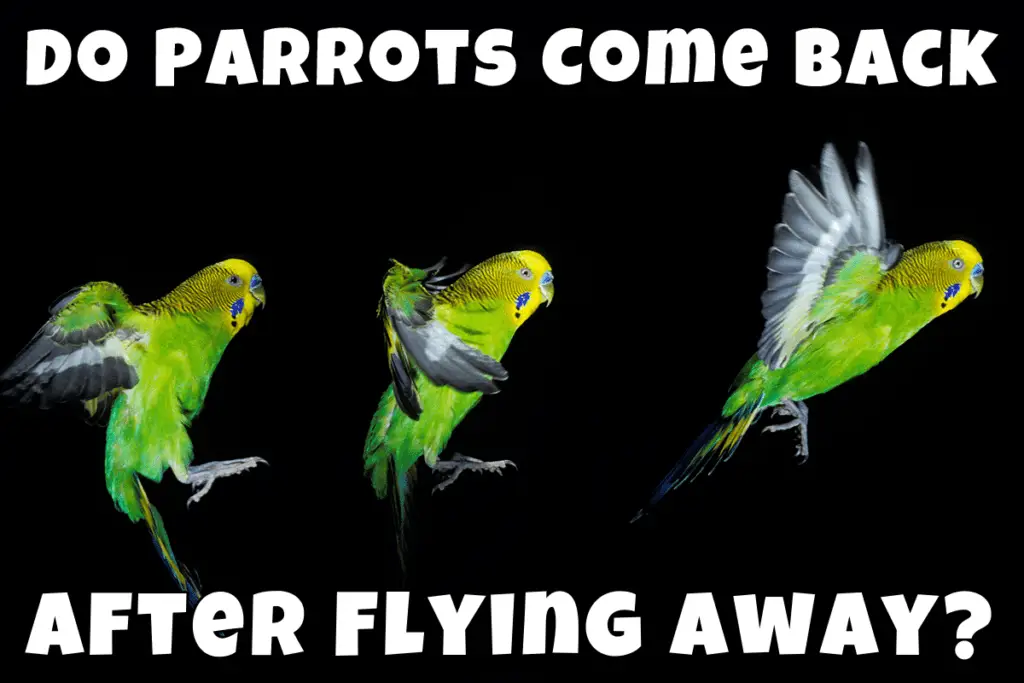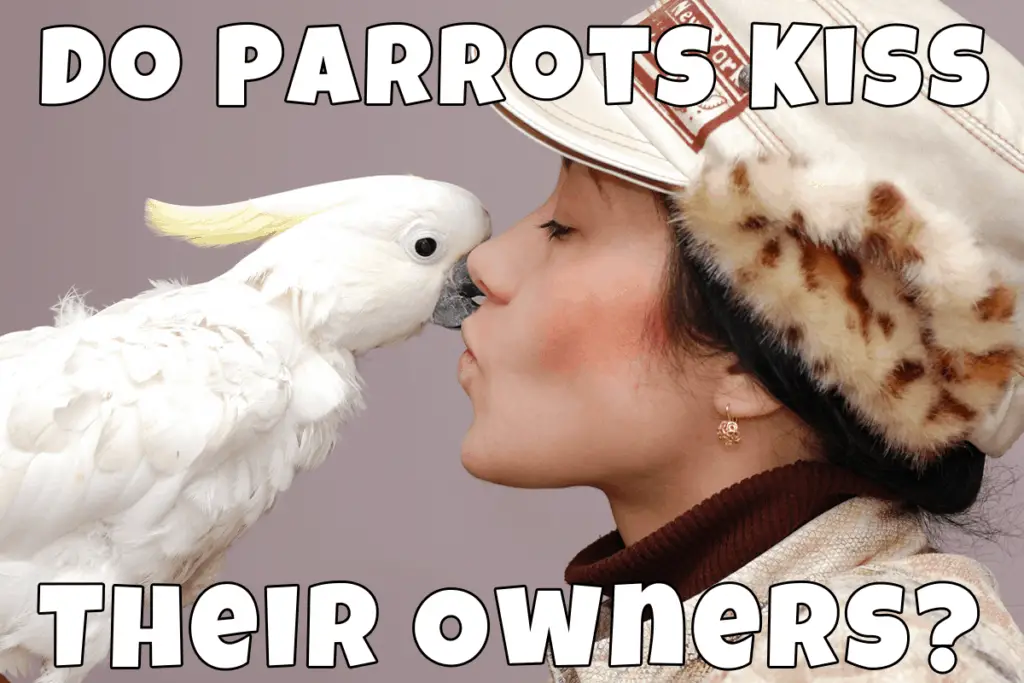During cold seasons like autumn and winter, the weather becomes cold and windy, so I started to worry about my cockatiel. Unfortunately, the weather has been pretty cold for the latest few years.
I wasn’t sure the bird was comfortable with the temperature, mainly because it is small and originates from warm regions where the climate is hot even in the fall.
I didn’t even know whether it could get cold during cold seasons. Maybe I need to take some measures to prevent my cockatiel from being cold. So I decided to dig some more info regarding this topic. And today, I’m going to share it with you.
So do cockatiels get cold?
The answer is Yes. Cockatiels originate from scorching tropical lands, so they are very sensitive to the low temperatures here. So during cold seasons, you have to make their cage warm to replicate their native environment. Plus, you have to provide nesting space for the parrots to stay warm.
Being cold can be a real problem for your cockatiel. So if you have one at home, you should know what temperatures are comfortable for them.
Because cockatiels are native to Australia, they are used to a very warm climate, and it can be difficult for them to undergo temperatures changes.
How Do I Know if My Cockatiel Is Cold?
Different cockatiels will show off that they are cold in slightly different ways. So it would help if you were very attentive when looking for the signs that your parrot is cold.

One of the signs is puffing feathers. If you notice this and your parrot making themselves in a ball and trying to huddle up for warmth, be sure your parrot is cold.
But be sure to oversee these signs as fluffing feathers can also indicate various behavior, for example, when they are going to fall asleep. But there will be differences in the intensity of such behavior. For example, they don’t usually tremble or hide their beaks under the wings when they are asleep.
So other signs your cockatiel is cold are shivering and hiding their head under the wings and chest. These signs definitely indicate that the bird is very cold, and you need to take some measures to make it warm.
Some basic rules to prevent cockatiel from being cold is to ensure that their cage is placed in a warm room and there is no draft next to it.
Make sure it is not in a draft or a freezing room.
With this in mind, if you have central heating that can be regulated, how warm should the cockatiel be? What temperatures does a cockatiel prefer? Let’s discuss this further.
How Often Do Cockatiels Lay Eggs?
What Temperature Is Too Cold for Cockatiels?
It’s a good idea to decide what temperature is comfortable for you. It has to be not very hot, but not very cold. This temperature range can be comfortable for your tropical bird too.
70 degrees Fahrenheit is the preferable base temperature. Anything below it can be too cold for your pet. Even if you might be comfortable with a lower temperature, your cockatiel more likely will not be ok with it.
Keeping your parrot inside with no drafts or breezes at a medium temperature is suitable for a cockatiel.
Ideally, you can keep the temperature in your house at 77 degrees Fahrenheit. However, this might feel too warm for you. Lowering the temperature at night might be a good idea as this will mimic the natural temperature shift.
How Do I Keep Cockatiels Warm in the Winter?

The best option is to use central heating. Maintaining warmth in your house during the winter season is the most obvious way to keep your pet warm. Your cockatiel will be fine in the room where it’s warm.
In addition to that, put into the cage enough material for the parrot to build a nest where he can get warm.
Another crucial thing that many cockatiel owners often overlook is where you place the cage. If it stays in a draft, the cockatiel will still be cold no matter how warm the room is. So you have to ensure the proper cage placement too.
And the next question is, what about nighttime?
Are Cockatiels Messy? Cleaning Tips
How Do I Keep My Cockatiel Warm at Night?
Ensure your cockatiel has a nesting box with all the necessary materials and fresh bedding there.
Your parrot will need a place to get warm, even if it’s summer. Because even in summer, the temperature can change suddenly and become not comfortable for your cockatiel.
Having said the above, if you follow all the advice given in this article, the only way to keep your cockatiel warm at night is to give it a place to nest.
Final Thoughts
If your cockatiel gets too cold, that’s not a joke. It would be best to take a parrot’s temperature needs very carefully because they make a hard impact on its health.
As these birds are used to warm places, they need a warmer place to stay in during the night. So as long as you follow the given advice, your cockatiel won’t get cold and will be happy and warm.


